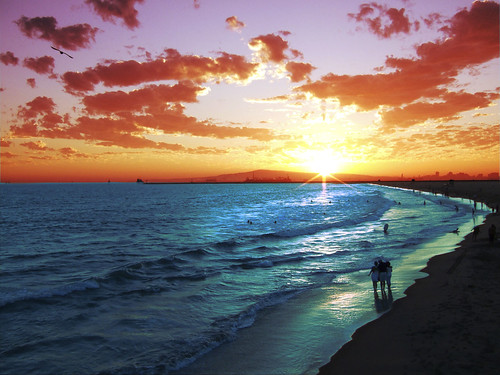Landscape photography is widely popular. I am sure if you look around your home you will see at least two landscape prints that spoke to you. Photography is an art that has a message. As a photographer you have to find the message you want to portray. If you specialize in landscape photography you might think your task is easy to complete. As with any photography you have to pay attention to the details, the lighting, shadows, subject, and the equipment.

Black and white landscape photography is the hardest section to attain true artistry because you are not relying on the colors as much as the lights and shadows the image will create. Composition is very important. Composition in photography means to look for sharp edges, tones and textures. The basis of black and white photography is getting the camera to see what your eye sees in color; to bring the highlights and shadows forward with the angle of the picture. Typical subjects for black and white photography are buildings and water. Water gives the surrounding trees and rocks a contrast while drawing the eye. Landscape can encompass buildings or bridges among other subjects. Buildings lend to the angles and contrast you seek when trying for definition and emotion.
When landscape photography is your subject in color you will need to have contrast between the colors. If the sky is blue and you have blue water below chances are the picture is not going to have the contrast you are hoping for. Like black and white photography you need to have definition or composition in the shot. You will need to take a few minutes to set up the shot and perhaps take several frames before being satisfied. Color photography takes less skill than black and white photography so if you have master the last you will succeed at the first.

Lighting for landscape photography is natural rather artificial. This is important when setting up your shot. You will need to have filters for the sunlight if it is a bright day, perhaps a tripod to set up the shot and a professional grade camera to create professional prints. Studying your subject from all angles is also important. You want to make sure you are picking the best angle for the shot. Remember the message is brought forth by the skill of the photographer.
You abilities should be honed and practiced. Digital photography makes landscape photography easier because you can assess the photo before you leave a site. Again the LCD screen isn’t going to show you every aspect of the print so you will want to take a few shots of the same site to ensure a perfect picture.
Even being an amateur photographer you can gain professional looking landscape photography. The best way to gain great photographs is to practice with a subject. Going back to the same site during different seasons can help you hone your skills and net you an even better print the next time around. All photographers’ start at the same level, some may have innate skills and an eye for the photo, but practice will lead to the best print. Landscape photography may not require the skills of wildlife photography with panning the subject or portraits where you have to enliven your subject; however, it does require skills and practice.


No comments:
Post a Comment